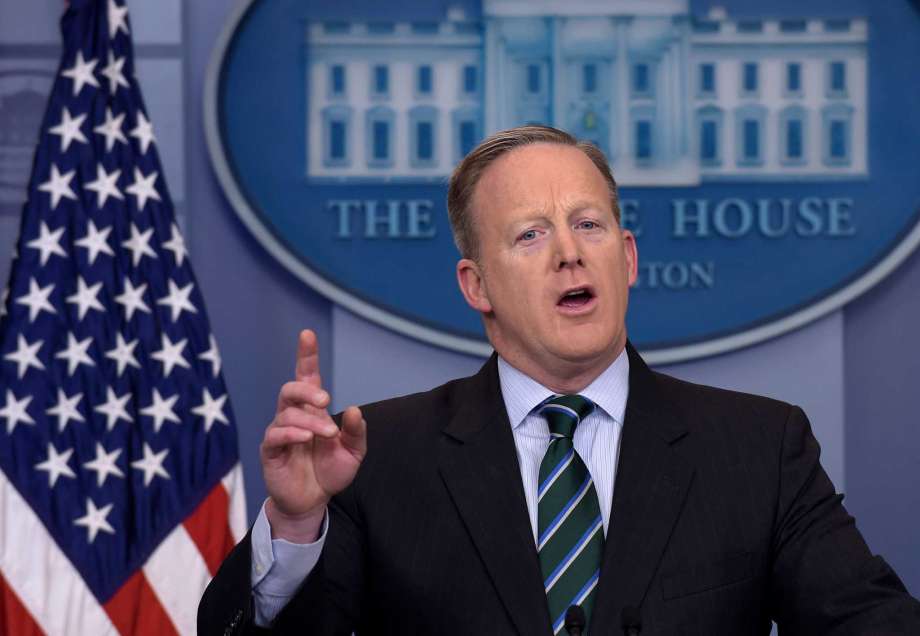
White House Press Secretary Sean Spicer speaks during the daily briefing. (AP Photo/Susan Walsh, File)
Recent comments at a press briefing from White House spokesman Sean Spicer on the South China Sea seem to have riled the Chinese and confused others who follow developments in the region.
When asked to remark on Rex Tillerson, Trump’s nominee for secretary of state, and Tillerson’s earlier threats to deny China access to man-made, militarized and disputed islands it occupies in the Spratly island chain, Spicer assured, “The U.S. is going to make sure that we protect our interests there.” He added, “It’s a question of if those islands are in fact in international waters and not part of China proper, then yeah, we’re going to make sure that we defend international territories from being taken over by one country.”
Beijing quickly responded to Spicer’s comments, with Chinese Foreign Ministry spokeswoman Hua Chunying telling a regular press briefing the following day, “the United States is not a party to the South China Sea dispute” and reiterating China had “irrefutable” sovereignty over disputed islands. She added, “We urge the United States to respect the facts” and defended Beijing’s actions in the South China Sea as “reasonable and fair”.
Bonnie Glaser, an expert on the South China Sea at the Center for Strategic and International Studies, called Spicer’s remarks “worrisome,” adding the Trump administration was “sending confusing and conflicting messages.”
Other littoral countries of the South China Sea, including Brunei, Indonesia, Malaysia, the Philippines, Taiwan and Vietnam have often argued China’s actions are anything but reasonable and fair, and Chinese Foreign Ministry spokeswoman Hua Chunying’s pleas for the U.S. to “respect the facts,” is confusing in this era of “alternate facts”, a term put forth by Kellyanne Conway, as Counselor to the President. And Spicer, in defending his claims of the size of Trump’s inauguration during Monday’s press briefing, said “I think sometimes we can disagree with the facts.”
But a fact is actual occurrence, not an opinion on a fact, and actions under the new administration will speak louder than heated rhetoric. The fact remains on both sides that China has occupied and militarized these disputed islands, and blocking China’s access to those islands could spark a serious confrontation.
In his vague comments, Spicer may have realized he was sailing into dangerous waters. When pressed over how the United States could enforce such a move against China, he responded: “I think, as we develop further, we’ll have more information on it.” Hopefully, we can take some comfort in this last sentence, and that more information will lead to true facts prevailing over alternative facts, when a new and untested Trump administration determines what actions, if any, to take over the disputed South China Sea.